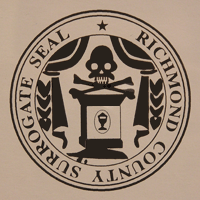When a Person Dies With a Will

When a decedent, or a person who dies, leaves a will, a proceeding must be completed in the Surrogate’s Court to probate or prove the will. More specifically, probate proceedings involve proving to the court’s satisfaction that the offered document is in fact the decedent’s own expression of his or her desire, made with full testamentary capacity and in accord with the dictates of the law concerning the making of wills.
When a Person Dies Without a Will
When someone dies without a will, the law provides by whom, and to whom, the decedent’s estate will be distributed.
Article 10 of the Surrogate’s Court Procedure Act controls procedures for the appointment of an administrator to take charge of an estate. In determining who shall be an administrator, Article 10 looks to the closest (or one of the closest) family members of the decedent who is entitled to share in the decedent’s assets (a distributee).
Small Estates Administration
In cases where a person dies on or after January 1, 2009, leaving personal property with a value of less than $30,000 in his or her name only (excluding the value of any real estate, properties passing by a joint ownership or by contract, or exempt property set aside for spouse or children under 21), there exists a simplified process for appointing a voluntary administrator to take charge of and distribute such an estate.
Once an Executor, Administrator or Voluntary Administrator is Appointed
When a person is put in charge of a decedent’s affairs as an executor, administrator or voluntary administrator, he or she must collect the decedent’s assets, file any and all necessary tax returns, pay the decedent’s debts from the estate assets and distribute the net estate to the decedent’s beneficiaries pursuant to a will or the laws of intestacy. While handling an estate, a fiduciary will often have to show others proof of his or her authority to act on behalf of the decedent. This proof, which is issued by the Court, takes the form of Letters Testamentary (for executors), Letters of Administration (for administrators), or certificates of Voluntary Administration (for persons in charge of a small estate).
